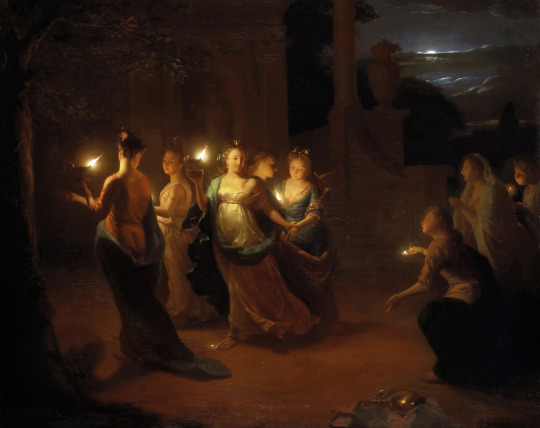Quote
The concrete facts of “Someone Like Us”: Mamush, a journalist in Paris, is supposed to fly to Washington, D.C., with his wife and young son to spend Christmas in the Virginia suburb where his Ethiopian immigrant mother lives. His ride from the airport will be Samuel, who lives nearby and is most likely Mamush’s unacknowledged father. But Mamush ends up traveling alone — his son has a mysterious medical condition, an unexplained difficulty in movement that eerily echoes his father’s emotional paralysis — and although Mamush makes it to the airport with plenty of time, he manages to miss his flight. This is nothing new; as his wife points out, “You look for ruin. And if you can’t find it, you make it.”
Book Review: ‘Someone Like Us,’ by Dinaw Mengestu - The New York Times
0 notes
Quote
Immediately before its war against Indonesian independence fighters, the Netherlands itself emerged from five years of ruthless German occupation. The country had been plundered. The massive bombing of Rotterdam had leveled the city’s medieval core and left nearly 80,000 people homeless. The occupiers had banned all political parties except a pro-Nazi one. Those suspected of being in the resistance had been jailed and tortured; many of them had been killed. In the winter of 1944–45, the Germans had cut off heating fuel and food for much of the country, and some 20,000 people had starved to death. More than 200,000 Dutch men, women and children had died of causes related to the war, just over half of them Jews who’d perished in the Holocaust. As a percentage of the population, this was the highest death rate of any country in Western Europe. And more than half a million Dutch citizens had been impressed as forced laborers for the Nazis, usually working in war factories that were the targets of Allied bombers.
When victims become perpetrators, are they unconsciously taking revenge? Many conflicts, including those raging today—think of Gaza, for instance—have this underlying subtext. The whistleblower soldier Joop Hueting reported a haunting piece of graffiti he saw as Dutch troops advanced in Java, which answered the question definitively: “Don’t do to us what the Germans did to you!”
The Reason One Colonial War Was So Brutal
0 notes
Quote
But the Netflix series has turned many of the trilogy’s various protagonists into a collection of friends, all scientific prodigies in their 30s who studied under the same mentor at Oxford University. They’re dubbed the “Oxford Five,” and they include Auggie (played by Eiza González), a nanotech expert and the show’s version of Wang; Jin (Jess Hong), a brilliant theoretical physicist who gets sucked into playing the VR game; Saul (Jovan Adepo), an aimless researcher and Auggie’s on-again, off-again love interest; Will (Alex Sharp), a selfless teacher who has long harbored a crush on Jin; and Jack (John Bradley), a wealthy entrepreneur who left academia to run a snack company. All are rather well-adjusted versions of their written counterparts. (Wang, for instance, is a middle-aged workaholic who neglects his wife and child as he searches for solutions.)
The result is a story that certainly feels more conventionally TV-worthy—but it essentially abandons one of the books’ most interesting themes: that of the loneliness and terror that can come with the pursuit of knowledge and progress. Part of the pleasure of reading Liu’s dense story is in observing how he shuffles characters in and out, discarding protagonists in favor of new ones from one book to the next. Given a conflict that won’t manifest for centuries, the story becomes about which theories last—and how so many of the figures who come up with ingenious plans must learn to share them and convince others of their worldview.
What Netflix’s ‘3 Body Problem’ Can’t Solve
71 notes
·
View notes
Photo




The Wise and Foolish Virgins, 1700.
— Godfried Schalcken (1643-1706)
7K notes
·
View notes
Quote
“Science fiction is not 'about the future.' Science fiction is in dialogue with the present... a significant distortion of the present that sets up a rich and complex dialogue with the reader's here and now.”
- Samuel R. Delany, Starboard Wine, 1984
39 notes
·
View notes
Link
De Castro agrees that Vargas Llosa’s “goal” from the beginning has never been “equality, but modernization.” In “Literature Is Fire,” his acceptance speech for the Rómulo Gallegos Prize, in 1967, De Castro explained, “Vargas Llosa said that we should seek the end of barbarism and to enter modernization.” Last year, while explaining why he was supporting Kast, Vargas Llosa argued that “the case of Chile is very important because it was a country that was leaving underdevelopment behind; it was a country that seemed closer to Europe than to the underdeveloped world.” Frustrated by the victories of the candidates he has opposed, Vargas Llosa has repeatedly chastised Latin American voters for their choices. “What matters in elections is not whether the elections are free, but to choose right,” he said, in 2021. In any event, Vargas Llosa “has lived doing the opposite of what was expected of him,” Roncagliolo said—that’s why, “in times where writers no longer matter,” we “are always talking about him.”
0 notes
Text

From the Abbey Road hardbound book, included in the 50th anniversary Super Deluxe box set.
Ringo’s quote really hits hard.
611 notes
·
View notes
Photo

Barbara Morgan :: Dancer Valerie Bettis in Desperate Heart, 1944 (printed ca. 1982). This image of modern dancer and choreographer Valerie Bettis performing her signature work approaches abstraction. Her body is almost completely obscured by the cascading fabric of her skirt. / src: akron art museum
more [+++] / also on wordPress
227 notes
·
View notes
Quote
In one of the most moving and memorable scenes from the “Iliad,” the great Trojan warrior Hector says farewell to his wife, Andromache, who has urged him not to risk his life by fighting on the plain. He gives their baby back to her, tells her to go home, and reiterates his decision to advance on the enemy.
Around 100 complete English translations of the “Iliad” have been published over the past 400 years. Their variety shows no clear trajectory of cultural change: Some of the more recent Homers are more archaic and less idiomatic than many earlier ones, but some are not. A wide variety of forms are used to “translate” the dactylic hexameter of the original, including prose and free verse as well as several poetic meters.
The translations reflect a wide range of possible interpretations of this short passage. Is Hector harshly scolding Andromache for offering advice about the war, despite her gender? Or is he treating her with gentle pity? Is she worried only about her husband’s death, or is she also concerned about her own imminent enslavement and their baby’s slaughter? Are her concerns valid? Does the warrior risk his life despite his love for his family, or because of it? Why must men fight? Why must women weave? How strange, or how familiar, is the society of the poem?
Essay: How Different Translators Bring New Life to the ‘Iliad’
4 notes
·
View notes
Text

Damien Hirst's cherry blossoms will be exhibited at the Foundation Cartier in Paris
394 notes
·
View notes
Photo

Is this really the only portrait of William Shakespeare made in his lifetime?
1 note
·
View note
Photo


Hong Sang-soo
- Virgin Stripped Bare by Her Bachelors
2000
40 notes
·
View notes
Photo









The Decline of Western Civilization (Penelope Spheeris, 1981)
457 notes
·
View notes





